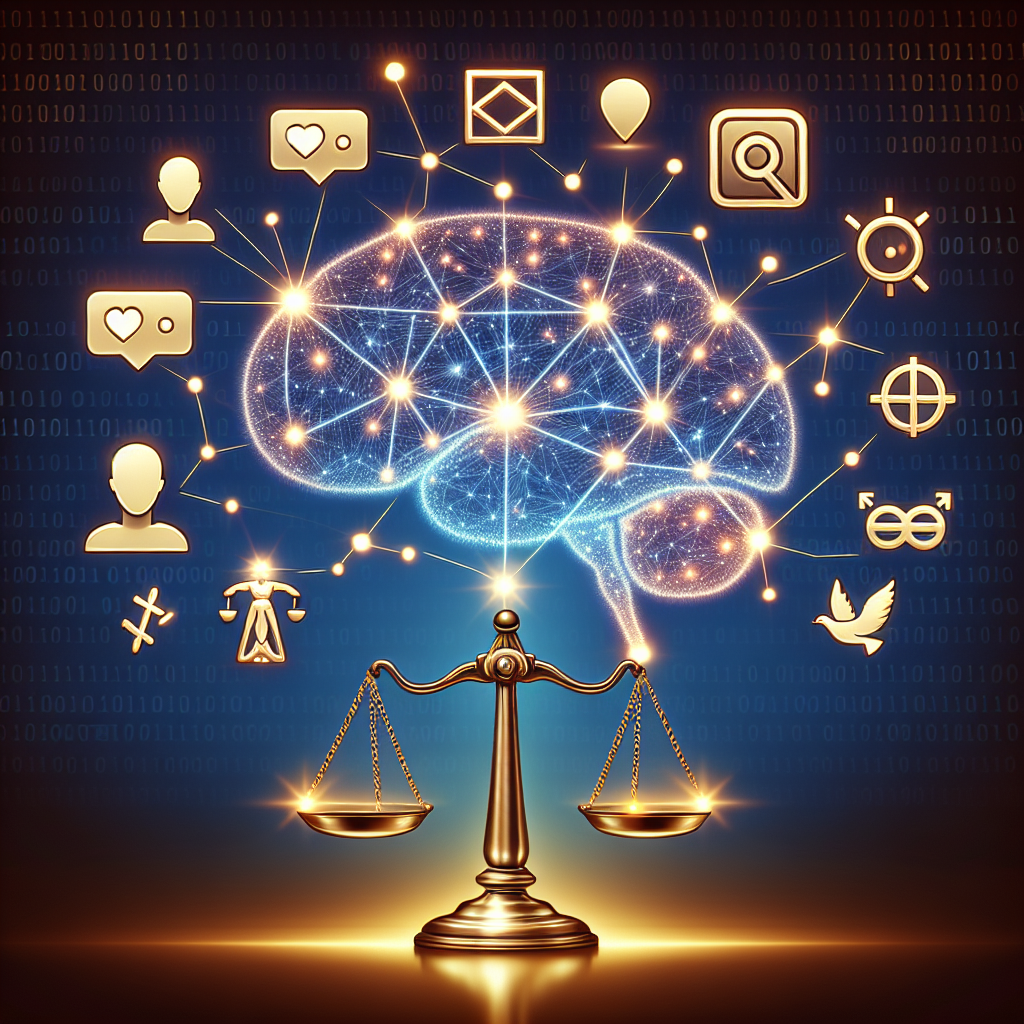Artificial intelligence (AI) has revolutionized the way we interact with social media platforms, with AI-powered algorithms shaping our online experiences in ways we may not even be aware of. One area where AI has had a significant impact is in the realm of social media influencers, who play a crucial role in shaping consumer behavior and driving engagement on platforms like Instagram, YouTube, and TikTok.
However, as AI-powered social media influencer strategies become more prevalent, questions about the ethics of using these technologies to manipulate and influence users have come to the forefront. In this article, we will explore the ethical implications of AI-powered social media influencer strategies and discuss some of the key considerations that brands and influencers should keep in mind when leveraging these technologies.
The Rise of AI-Powered Social Media Influencer Strategies
Social media influencers have become a powerful force in the world of digital marketing, with brands increasingly turning to these individuals to promote their products and services to a wide audience. Influencer marketing has proven to be highly effective, with studies showing that consumers are more likely to trust and engage with content created by influencers than traditional forms of advertising.
In recent years, AI has been increasingly integrated into social media influencer strategies, with brands and influencers using machine learning algorithms to analyze data, identify trends, and optimize their content for maximum impact. AI-powered tools can help influencers identify the best times to post, the most engaging types of content to create, and even predict which products are likely to resonate with their audience.
One of the key benefits of using AI in social media influencer strategies is the ability to personalize content and tailor it to the preferences of individual users. By analyzing data on user behavior and preferences, AI algorithms can help influencers create content that is more relevant and engaging, leading to higher levels of engagement and brand loyalty.
Ethical Considerations of AI-Powered Social Media Influencer Strategies
While AI-powered social media influencer strategies can be highly effective, they also raise a number of ethical concerns that brands and influencers need to consider. One of the main concerns is the potential for AI algorithms to manipulate and deceive users, leading them to make decisions that they might not have otherwise made.
For example, AI algorithms can be used to create deepfake videos or images that make it appear as though an influencer is endorsing a product or service when they are not. This type of manipulation can erode trust between influencers and their audience, leading to a backlash against the influencer and the brand they are promoting.
Another ethical concern is the potential for AI algorithms to perpetuate harmful stereotypes and biases. For example, AI algorithms that analyze user data to identify trends and preferences may inadvertently reinforce existing biases, leading to content that is discriminatory or exclusionary.
In addition, there is also the risk that AI-powered social media influencer strategies could lead to the exploitation of vulnerable individuals, such as children or those with mental health issues. Brands and influencers need to be mindful of the potential impact of their content on these groups and take steps to ensure that they are not being harmed or manipulated.
Key Considerations for Brands and Influencers
In light of these ethical concerns, there are a number of key considerations that brands and influencers should keep in mind when using AI-powered social media influencer strategies. One of the most important considerations is transparency – brands and influencers should be upfront about the use of AI in their content creation process and clearly disclose any sponsored or paid partnerships.
In addition, brands and influencers should also prioritize authenticity and integrity in their content, ensuring that they are creating content that is genuine and reflects their true values and beliefs. This can help to build trust with their audience and avoid accusations of manipulation or deception.
Furthermore, brands and influencers should also be mindful of the potential impact of their content on vulnerable individuals and take steps to mitigate any harm that may arise. This may involve setting strict guidelines for the types of content that can be created using AI algorithms, as well as monitoring the impact of their content on different user groups.
Frequently Asked Questions
Q: How can brands and influencers ensure that their AI-powered social media influencer strategies are ethical?
A: Brands and influencers can ensure that their AI-powered social media influencer strategies are ethical by prioritizing transparency, authenticity, and integrity in their content creation process. This includes clearly disclosing any sponsored or paid partnerships, creating content that is genuine and reflects their values, and being mindful of the potential impact of their content on vulnerable individuals.
Q: What are some of the potential risks of using AI in social media influencer strategies?
A: Some of the potential risks of using AI in social media influencer strategies include the potential for manipulation and deception, the perpetuation of harmful stereotypes and biases, and the exploitation of vulnerable individuals. Brands and influencers should be aware of these risks and take steps to mitigate them in their content creation process.
Q: How can brands and influencers balance the use of AI with ethical considerations in their social media influencer strategies?
A: Brands and influencers can balance the use of AI with ethical considerations in their social media influencer strategies by prioritizing transparency, authenticity, and integrity in their content creation process. By being upfront about the use of AI, creating content that is genuine and reflective of their values, and being mindful of the potential impact of their content on vulnerable individuals, brands and influencers can ensure that their strategies are ethical and responsible.

